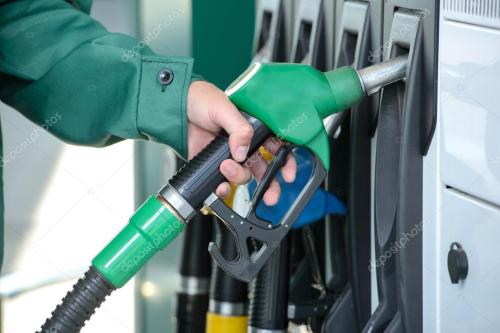The Abuja Petrol Price Surge: What You Need to Know
If you live in Abuja, you’ve likely felt the shockwave of the latest petrol price hike. It’s not just a subtle increase — we’re talking about a jump to N897 per liter as of September 3, 2024, a staggering leap from N617 per liter. It’s a development that has left many residents reeling, and as someone who drives daily in the city, I can tell you it’s already hitting hard.
But what’s causing this sudden increase, and how can you navigate through the inevitable ripple effects on your daily life? Let’s dive into the factors behind the price hike, how it’s affecting Abuja residents like me, and the strategies you can use to cope in these challenging times.
A Deeper Look: Why Did Petrol Prices Skyrocket?
Let’s face it — this isn’t just about the pump price. It’s about a larger problem brewing within the Nigerian National Petroleum Company Limited (NNPC). The NNPC is currently dealing with a massive debt of $6.8 billion owed to international fuel suppliers. This debt has crippled the company’s ability to maintain stable fuel prices, leading to the increase.
Here’s a glimpse of what’s behind this price surge:
1. NNPC’s Debt Crisis
- The national oil company is drowning in billions of dollars of debt, and without the funds to maintain a steady fuel supply, prices have become volatile.
- This financial strain has been passed on to consumers, resulting in the current situation.
2. Supply Chain Challenges
- Independent stations are facing even tougher times, with petrol prices ranging from N930 to N950 per liter at non-government outlets.
- These stations are finding it increasingly difficult to source fuel, which is contributing to the varied prices across Abuja.
Fuel Price in Abuja Today: The Breakdown
| Station Type | Price per Liter (Naira) |
|---|---|
| Official Stations (NNPC) | 897 |
| Independent Stations | 930-950 |
The price difference is striking, and it has created a ripple effect across all sectors of the economy, from transportation to goods and services.
How the Petrol Hike is Affecting Life in Abuja
Personal Experience: “Filling Up is Painful”
As someone who commutes daily, I’ve noticed an immediate impact on my transportation costs. What used to be a routine visit to the fuel station has now become an anxious calculation. When I pulled up to fill my tank this morning, the bill came out much higher than expected. And this is just the beginning — expect higher taxi fares, rising prices of goods, and more pressure on household budgets.
Economic Ripples: The Domino Effect
The price hike doesn’t stop at the pump. Everything from food to transportation services is bound to get more expensive. Abuja’s markets have already started to reflect these changes, and residents are worried about how long this will last. The burning question remains: Will prices continue to climb?
Key Takeaways:
- New petrol price in Abuja: Official stations now sell petrol at N897 per liter, while independent stations charge between N930 and N950 per liter.
- Financial strain on NNPC: The price increase stems from NNPC’s $6.8 billion debt, causing instability in fuel prices.
- Wider economic impact: From higher transport fares to costlier groceries, expect a ripple effect on daily living expenses.
- Tips for Abuja residents: Consider carpooling or using public transport to reduce fuel costs and budget for rising prices in essential goods.
Frequently Asked Questions (FAQs)
1. What’s the official petrol price in Abuja today?
The official petrol price is N897 per liter as of September 3, 2024.
2. Why is the price higher at independent stations?
Independent stations face additional supply challenges, with prices ranging between N930 and N950 per liter. They don’t have the same purchasing power as NNPC and therefore source petrol at higher costs.
3. How often do fuel prices change in Abuja?
Fuel prices in Abuja are reviewed weekly based on global oil markets, exchange rates, and local supply conditions.
4. What can I do to manage rising fuel costs?
- Carpooling: Share rides with friends or coworkers to split fuel costs.
- Use public transport: It might be less convenient, but it’s a cost-effective way to reduce fuel expenses.
- Stock up on essentials: Prices of goods and services are bound to rise, so consider buying essentials in bulk before they become more expensive.
5. Is the price increase temporary?
It’s hard to say. Until the NNPC resolves its financial issues, prices may continue to fluctuate. Keep an eye on local news and government announcements for updates.
Navigating Through the Challenges: A Personal Guide
This petrol price hike has been a tough pill to swallow, but there are steps you can take to ease the impact. Here are a few personal tips that might help:
1. Plan Your Commutes
Try to combine multiple errands into one trip to save fuel. I’ve started mapping out my trips more efficiently, avoiding unnecessary travel and cutting down on daily mileage.
2. Budget for Rising Prices
It’s important to adjust your household budget now. Whether it’s groceries or transportation, anticipate an increase in costs and plan accordingly. You may even want to set aside a small emergency fund to cover unexpected expenses.
3. Keep an Eye on the News
Stay updated on any changes to fuel prices, as the situation is evolving. Follow credible sources on social media or news apps to get real-time updates on the fuel market.
Final Thoughts: What’s Next for Abuja Residents?
As we watch this situation unfold, one thing is clear: Abuja’s residents are feeling the strain of the rising fuel prices. While we can’t control global oil markets or the NNPC’s debt crisis, we can take steps to navigate through these challenges. Whether it’s adjusting our budgets, finding ways to save fuel, or staying informed, resilience will be key in the coming months.
Stay Connected
Follow NNPC’s official website and social media channels for real-time updates on fuel prices and availability. Stay informed with local Abuja news through The Abuja Times.


